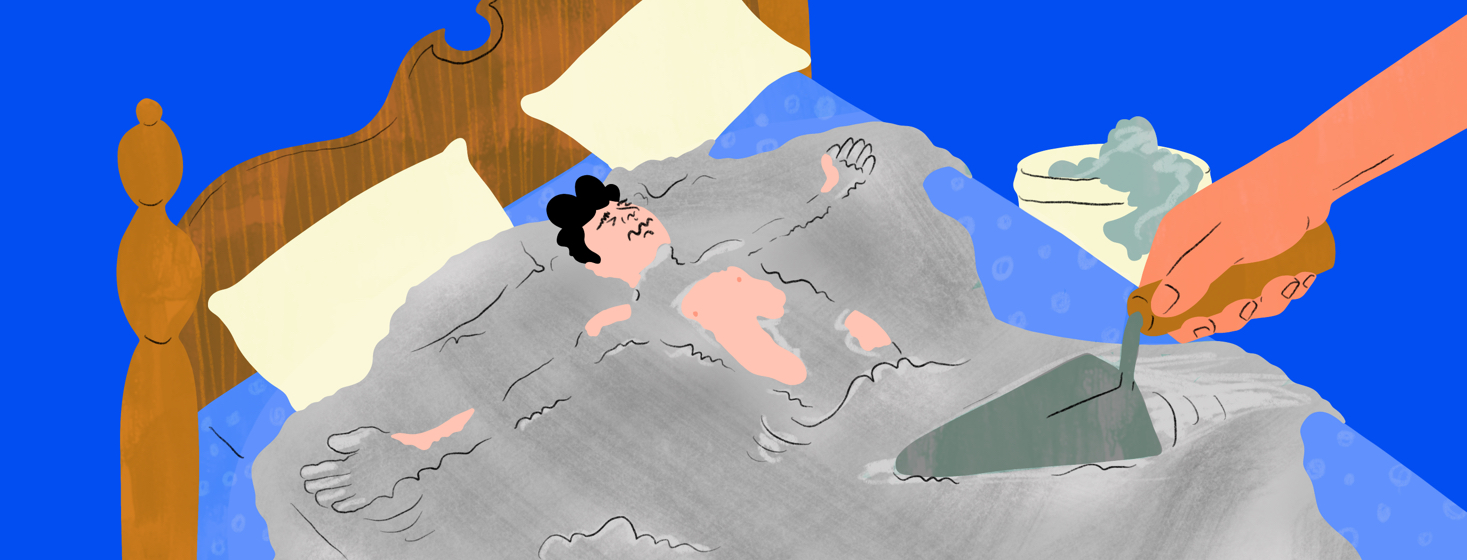Mornings with Axial Spondyloarthritis: Waking Up in Pain
I never was an early riser. As a teenager, I could easily sleep til noon on the weekends without concern that I was missing something and, more importantly, without being woken up by joint pain. That seems so long ago now!
Though I’m more accustomed to getting up early in recent years for work, most mornings I don’t know that my body would let me sleep in late even if I wanted to. Pain is my alarm clock, my wake-up call.
My morning wake-up call
When I was younger and determined to sleep in past my parent’s first attempts to wake me for school, I would face a rude awakening as my dad opened the curtains or my mom pulled the blankets from the bed. For the past week, that rude awakening has come in the form of joint pain and stiffness.
This morning my hands felt as if they were encased in hardened cement blocks. I woke but remained still for fear that the pain would increase with movement. I often lay there thinking about what I could do differently--if I sleep in a different position, might I not wake with my hands feeling so rigid?
In addition to the stiffness in my hands, I’ve also been waking to (or by) severe pain in my hips. Some mornings the pain is so intense that it feels like my hip bones were shattered to pieces in the night. Though I know I have to move, and that movement will help ease the pain, I always find it hard to bring myself to do it.
Morning stiffness is a hallmark symptom
Morning stiffness is one of the first symptoms I remember being asked about during my first rheumatologist visit. Typically, the morning stiffness begins in the lower back, where everything seems to begin with this disease! But the stiffness is in no way contained within the lower back.
Those of us diagnosed with axial spondyloarthritis know that morning stiffness is a hallmark symptom--stiffness that lasts longer than 30 minutes, becomes worse with inactivity, and improves with movement or exercise. My first rheumatologist began treating me with steroids to bring down the inflammation, which then gradually improved the morning stiffness.
Getting through the morning
It took me a while to get out of bed this morning because I was reluctant to test out how my hips would feel bearing my weight. The first few steps out of the bedroom were slow and painful. I hobbled around the house a bit, made some coffee, all the while hoping that gentle movement would ease the pain. It didn’t.
When movement doesn’t do the trick, a hot shower usually does. But not this morning. So I moved through my progression of tools and techniques to ease the pain. The next option is pain medication, which this morning included a generous slathering of diclofenac gel and some Tylenol.
But sometimes nothing puts a measurable dent in the pain. When all these methods fail, I know it’s time to cancel plans, get off my feet, and spend some time resting. On this particular morning, I planned to go for a drive and then do some writing. Instead, I went back to bed and somehow managed to fall in and out of sleep for a few hours, despite the pain. When I woke this time, I felt significantly better.
I wish I knew what caused an increase in my morning stiffness so that I could avoid it. I know that restless, sleepless nights equates to increased pain the next day, but occasionally the morning stiffness rears its head even after a decent night’s sleep. And since I work Monday through Friday, I can’t always just head back to bed when my morning stiffness persists. But just like many aspects of axial spondyloarthritis, this symptom is not reliably predictable and it’s certainly not avoidable.

Join the conversation